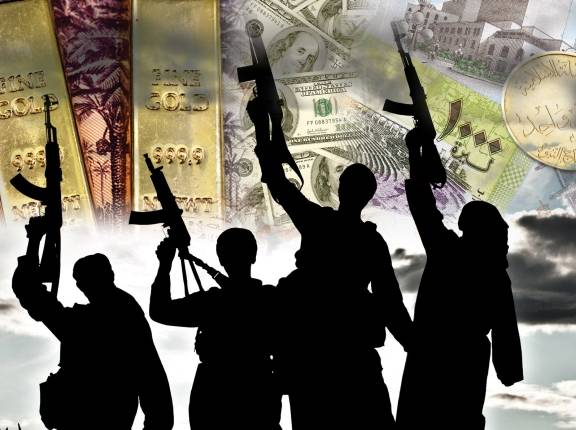
BY BACHA ZEWDIE
In its recent statement, the Attorney General recently announced that the bank accounts of financial institutions and businesses affiliated with the Tigrean People Liberation Front (TPLF) have been frozen.
The statement said the bank accounts were frozen because of the allegations that the companies had been financially sponsoring ethnic violence and acts of terrorism, and that they conspired with the TPLF to overthrow the constitutional order with force.
In addition,
sufficient evidence is found to investigate allegations of tax evasion and
corruption, the Attorney General said. As a result, it announced that the
institutions’ movable and immovable assets, including their bank accounts,
would be frozen since November 14, 2020.
The Attorney General pointed out that the ban was needed because there was ample evidence that the companies were trying to misappropriate their assets, and it was believed that it was appropriate to keep the assets under control until the decision is made.
Sur Construction, Mega Printing Plc.Guna Commercial Plc., Effort Electrical Business, Trans Ethiopia Plc., Mesfin Industrial Engineering Plc., Selam Public Transport SC, Effort Design and Construction Plc., Effort Plc. are among the companies that have been banned.
Experts in the field explain that the Attorney General’s ban on TPLF-affiliated financial and business entities has a legal basis. They also point out that the action will have two positive outcomes. Legal experts explain that if financial and commercial institutions are involved in the alleged crimes, the ban will help prevent money misappropriation from taking place.
Tsegaye Demeke, a lawyer and lecturer at Wachamo University, told the Amharic daily Addis Zemen recently that the action taken by the Attorney General against the organizations is well-founded. Every organization has a purpose. “If there is a suspicion that it is operating apart from that purpose, the government may suspend it at any time, conduct an investigation, and ban it if there is sufficient evidence.”
The ban on TPLF-affiliated organizations has a legal basis. It is supported by Ethiopia’s criminal law, anti-terrorism law, and anti-corruption proclamation. The Anti-Corruption Proclamation and the Anti-Terrorism Law clearly state that organizations with legal status are criminally liable. In addition to the regular criminal law, the Anti-Corruption Proclamation 881/15 and the new anti-terrorism law stipulate that if there is sufficient evidence of suspected corruption, their accounts may be suspended and investigated.
There has been common legal process in the world for centuries and one more common law for the past two decades. Prior to two decades, individuals were responsible and accountable for the crime they committed but not institutions. But that trend has changed over the past two decades.
Tsegaye said that over the past 20 years, it has become common sense that institutions should be held accountable for crimes, as crime is becoming more complex and finance is being used for orchestrating crimes.
He also explained that the world has come to understand that it is important to apply the accountability principle that is applied to prosecute criminal offences of individuals in the case of financial institutions.
According to Tsegaye, following this global trend, Ethiopia has criminalized institutions in addition to individuals. Investigations are provided by law if there is evidence of engagement in criminal activities. It is indicated by various legal frameworks that they might be investigated and prosecuted.
Tsegaye further explained that following this legal basis, the Attorney General has imposed sanctions on financial and business institutions affiliated with the TPLF. The Anti-Terrorism Law stipulates that if these organizations are caught involved in terrorist activities in one way or another, they can also be classified as terrorists beyond legal accusation.
In fact, if there are organizations that are classified as terrorists, they should be classified as such by the House of Peoples’ Representatives. No entity can be classified as a terrorist without being classified as such by the members of the parliament.
In the meantime, if the Attorney General has sufficient evidence to against the institutions, it may conduct an investigation with the National Intelligence and Security Agency and the Federal Police, he said.
According to Tsegaye, these organizations have been benefited from the previous system in terms of tax and other aspects, while this was not the case for companies not affiliated with the TPLF. As a result, he noted that many of these institutions did not have a good image.
Tsegaye stressed that great care must be given to ensure that the institutions do not become a source of political resentment due to their previous special benefits. If any of these institutions were not involved in the crime; they should not be stigmatized or harmed. Therefore, great care must be taken.
The ban was a precautionary measure as it has benefits and objectives. The crackdown on 34 TPLF-affiliated organizations, on one hand, will help prevent any further damage. On the other hand, it will play an important role in curbing crime by preventing them from once again supporting criminal activities.
As per Tsegaye’s explanation, the unrestricted property can be sold and transferred in various ways. It can also be moved from place to place. But if it is banned, this can be prevented. Institutions can withdraw money if the account is not blocked.
And if they are able to conceal money, it is very dangerous. But if it is banned, they will not be able to withdraw it. Preventive measures against money laundering have been used to prevent crime, and beyond that, it is possible to use the money in the bank to compensate for the damage, he said.
Tsegaye said those involved in the crime should be investigated immediately and legal action should be taken. On the other hand, those who are found to be above suspicion should be set free and the ban should be lifted.
It should be determined immediately whether the institutions are involved in a crime or not. He also said that if these institutions are involved in acts of genocide, terrorism and other crimes, action can be taken, including revoking their licenses and confiscating their property.
Institutions that are suspected, banned or under investigation have a duty to provide accurate information to help the investigation process. Thus, they should provide information without any complain, Tsegaye said.
The investigation should be carried out in a hurry and those involved in the crime should be held accountable. If they are not involved in the crime, they should be reinstated immediately. This is because they have a large number of employees, provide services to others, and pay taxes to the government.
Tsegaye said there is no law in Ethiopia that requires reimbursement to organization or individual who has been suspects of crime and finally found above suspicion. Thus, institutions can be suspended for one year and released, even if they are not guilty of any crime.
This has serious consequences. It is necessary to quickly make decision if they are not involved in a crime. Similarly, if they involve in criminal activities, the results of the investigation must be informed to the public.
Tewodros Getachew, a lawyer, seconds Tsegaye’s point. As to him, institutions can be held accountable under the Anti-Corruption Law and the Anti-Corruption Proclamation. In addition to the Anti-Terrorism Proclamation and the Anti-Corruption Proclamation, it is clear that Proclamation No. 780/2013 on the Prevention and Control of Illegal Money Laundering can also be applied in these cases.
In addition to domestic law, international treaties signed by Ethiopia stipulate that criminal organizations may be held accountable in addition to individuals. The action taken by the Attorney General is also valid under these treaties and laws.
He said the need to hold institutions accountable is growing because it is important not only to legalize money laundering, finance terrorism and prosecute crimes such as corruption but also prevent the use of funds.
According to law scholars and experts, nothing is more important than public safety. Therefore, if these institutions were really involved in the crime, they should be held accountable for completing the investigation. Every law enforcement action should be based on law and law alone.
Thus, these institutions are suspects until their guilt is proven. They have the legal right to be clean. Upon completion of the investigation, action may be taken to prosecute those found guilty, they stated.
The Ethiopian herald December 4/2020



